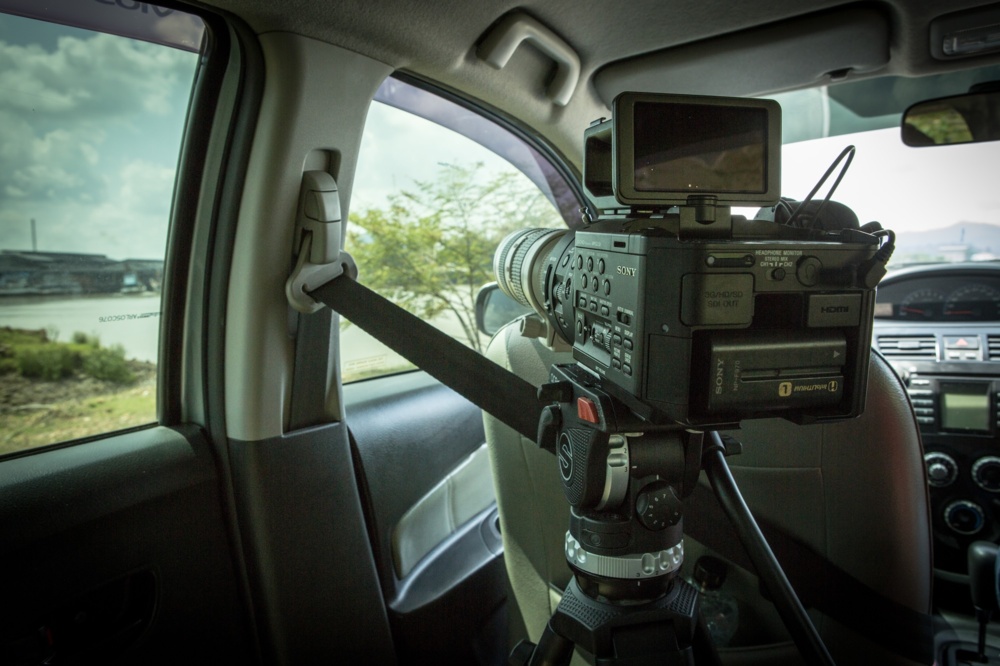
World Press Freedom Day: needed now more than ever
From warzones to endangered biomes, journalists are risking their lives to protect us all. Their vital work to expose crimes, abuse and destruction must be defended now.
Today marks the 30th World Press Freedom Day since the Declaration of Windhoek in 1993 and there is little to celebrate. In 1990, the International Federation of Journalists published its first ‘journalists killed list’ which numbered 40 reporters who had been murdered. Three decades later and the situation has worsened considerably. 2023 was the bloodiest year yet as the number of journalists killed almost doubled since 2022. This is in large part down to the Gaza conflict where Israeli forces killed an unprecedented 75 Palestinian journalists by the end of 2023.
There are a plethora of ways in which journalists are being persecuted for their work and, as the digital era develops, these methods of oppression and control only become more insidious. Around the world, reporters are being imprisoned, tortured, intimidated and surveilled. In Russia, Wall Street Journal reporter Evan Gershkovich has spent over a year imprisoned in Moscow. In Rwanda, journalist Dieudonné Niyonsenga, who is serving a seven-year sentence, recently reported that he was being kept in a “hole” and frequently beaten. In London, Iranian journalists are being subjected to death threats and intimidation, with one reporter being stabbed in the leg outside his apartment.
We can’t imagine the impact of these punishments on the individuals courageous enough to risk their personal safety as well as, all too often, the safety of their loved ones; but we can witness and measure the impact on global democracies and freedom of expression. It is no accident that the alarming decrease in press freedoms have occurred in concurrence with a spike in military dictatorships and far-right governments.
This year, World Press Freedom Day is being dedicated to the importance of freedom of expression in the context of environmental journalism, which is increasingly becoming another bloody frontline in the fight for a free press. According to Media Defence, reporting on the environment has become one of the most dangerous jobs in journalism, with at least 13 journalists investigating environmental issues killed in the last decade.
One case which made global headlines was the death of Guardian journalist Dom Phillips, alongside his friend and guide, Bruno Pereira, on 15th June 2022. The duo were travelling to the Lago do Jaburu region in the Amazon to research a book. Before leaving, Pereira had received a threat stemming from his opposition to illegal fishing gangs’ around the Javari river. They told Pereira, “We’ll find you to settle the score”.
A crucial part of our work at the Environmental Justice Foundation (EJF) is our training programmes for environmental journalists and activists wishing to cover illegal fishing and other environmental crimes, people bravely undertaking work similar to Pereira’s. EJF believes that, as the work of environmental journalists becomes increasingly crucial, one of the most impactful uses of our resources and expertise is to train these reporters and expand their investigative toolkit.
The need for journalists investigating and exposing environmental crimes is only increasing and, with it, the risk this work poses to their lives. EJF accordingly centralises safety and risk assessments as part of our training, aiming to give people with the courage to tell these stories the best possible tools to do so safely.
Since the conception of this training in 2020, EJF has trained journalists in Indonesia to strengthen coverage of the illicit trade in sharks. In Ghana, Somalia, Cameroon and Tanzania, we have better equipped journalists to investigate illegal fishing in their countries’ waters. All of these participants have taken on varying degrees of risk in order to cover these wide-ranging threats to their local environments — we hope EJF has not only aided their coverage of these issues, but helped them to prioritise their safety and security above all else.
The multiple threats to environmental journalists' lives and wellbeing are not going anywhere. While organising one of our journalist training sessions, one invitee initially expressed interest but this was quickly followed by fear. When invited, they asked, “will this get me in trouble with the government?” They soon explained, “this could risk my life. It has happened before.” In our response we explained that, when it came down to it, we could not offer immunity or the comfort they sought. The decision was theirs, as was the risk.
It is in all our interest to support and champion the work of these journalists as well as their freedom of expression. Without the former, the environmental crimes perpetrated by companies, governments and individuals will go unnoticed and unchecked at a time when our global environment is already on the cusp of irredeemable collapse. It is no exaggeration to say that these journalists are directly defending our most basic human rights, by shining a light on threats to the clean, healthy and sustainable environment we all deserve.
Without a free, independent press - democracy dies, truth dies and justice dies.
May today be a reminder of how lucky we are to have journalists around the world willing to risk their personal safety for the public good - however wrong it is that they currently have to do so - and just how easily this could be taken away without our collective efforts to support and protect them.
SIGN UP FOR OUR EMAILS AND STAY UP TO DATE WITH EJF